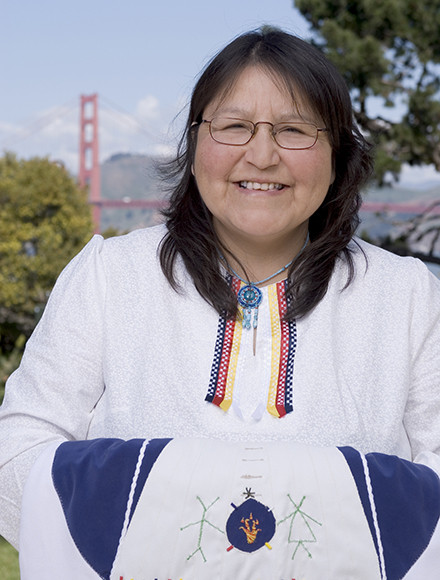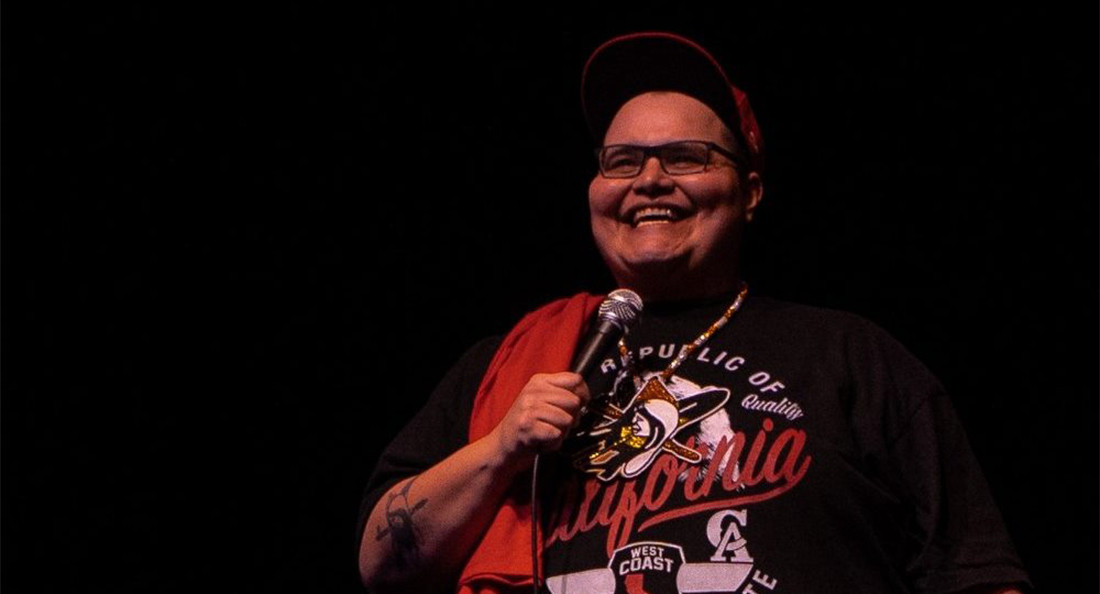‘Better late than never’
Mother-and-son podcast a fun way to learn Ojibwe

“When you speak the language, it becomes alive. There is a lot of humour to learning the language or even just speaking the language,” Sophia Rabliauskas says.
Everybody and their mother seems to have a podcast, but comedian Paul Rabliauskas has one with his mum, Sophia Rabliauskas. Paul Anishinaabemo is a new Anishinaabemowin (Ojibwe) language learning podcast available on Spotify and recorded out of Sophia’s home in Poplar River First Nation.
Paul thought about creating a podcast for two years. When the COVID pandemic hit, he found himself spending a lot more time with his mum and dad. One day at his parents’ house, he just decided to start.
“I literally just hooked up the microphone to my mum, and that’s how the first episode started,” Paul says. “It’s literally just our two worlds coming together.”
Paul is a comedian with a background in radio, and Sophia is a language teacher. Paul didn’t want to make just another comedy podcast. He says he “wanted to talk about something that was gonna leave more of a lasting impact.”
Though not specifically a comedy podcast, the show is both funny and educational.
“When you speak the language, it becomes alive. There is a lot of humour to learning the language or even just speaking the language,” Sophia says.
Sophia was happy to hear Paul finally wanted to learn Anishinaabemowin, because she had tried teaching her kids when they were young, getting together with her sisters and parents who speak the language to “laugh and try to teach them,” but there was never much interest, she says.
“It’s better late than never for him to learn the language and learn as much as he can,” she says, adding he can then pass it down to his kids, which is important, because the language is “who we are as Anishinabe.”
Sophia teaches whenever the opportunity arises and tries to “teach it the way it’s supposed to be taught.”
Gloria Barker teaches at Riverbend Community School’s bilingual Ojibwe program. Her sister, Wanda Barker, is a language teacher on weekends. Wanda and Gloria are from Hollow Water First Nation and were born in the ’60s. Wanda says they’ve noticed a huge shift in language usage since they were young, from everyone speaking the language to hardly hearing it at all.
“Language comes from the land (and) way of life, whether it’s hunting, whether it’s preparing food, whether it’s socializing, whether it’s economic, political, spiritual. All the words reflect from that worldview,” Wanda says.
As helpful as technology is to teach vocabulary and reach wide audiences, it can create a disconnect from traditional ways of learning the language. “It’s becoming more impersonal. It’s kind of moving away from how languages are naturally learned,” Wanda says.
A podcast can’t recreate a natural environment or replace a community of native speakers, but it can create the feeling of home. Language learning belongs in a safe and relaxing environment. It belongs in the home, Sophia says.
“I really do believe if you’re Anishinabe and you hear the language, that language is within you, and if you hear it, you reawaken that language that’s within you that your parents and your grandparents spoke,” she says.
She hopes people wanting to learn Anishinaabemowin will find the podcast, and young people will continue to create innovative ways to teach the language with new technology.
“We need more of the younger generation to become educators and bring the language back,” Gloria says.
Listen to Paul Anishinaabemo on Spotify.
Published in Volume 75, Number 20 of The Uniter (March 4, 2021)








